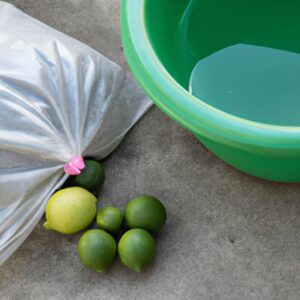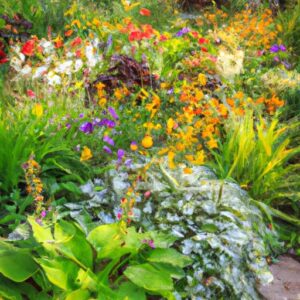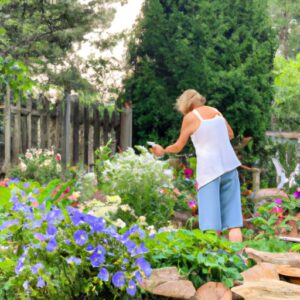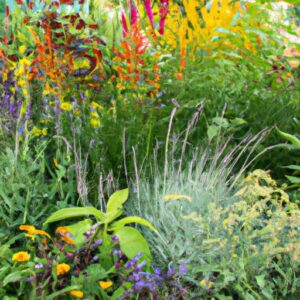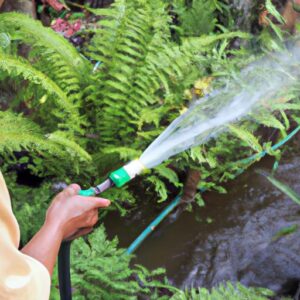Introduction
Gardening and sports are two activities that might seem worlds apart, but have you ever wondered if gardening could actually be considered a sport? In this article, we will delve into the intriguing relationship between gardening and sport, examining both the physical and mental aspects of this beloved pastime.
What Defines Gardening and Sport?
First, let’s establish what we mean by gardening and sport. Gardening refers to the cultivation and care of plants, whether it’s tending to a backyard vegetable patch or nurturing a beautiful flower garden. On the other hand, sports are typically associated with physical activities that involve competition, skill, and athleticism.
The Unexpected Connection
Now, you might be thinking, how can gardening, which often conjures images of peacefulness and tranquility, be compared to the intensity and competitiveness of sports? It’s a valid question, and one that opens up a fascinating discussion about the physical and mental demands of gardening.
Is gardening simply a leisurely hobby, or does it require a level of physical exertion and mental focus comparable to traditional sports? Can it provide the same sense of accomplishment and fulfillment? Let’s dig deeper and uncover the surprising similarities and benefits that gardening can offer.
Stay tuned as we explore the physical demands of gardening in Section II, followed by an examination of the mental and emotional aspects in Section We’ll also touch upon the growing trend of competitive gardening in Section IV, and address counterarguments against gardening as a sport in Section Finally, in our concluding thoughts in Section VI, we’ll encourage you to form your own opinion on whether gardening truly qualifies as a sport.
So, grab your gardening gloves and join me on this captivating journey to unravel the mysteries of gardening as a potential sport. Let’s unearth the truth together!
Section II: The Physical Demands of Gardening
Explanation of Physical Activities Involved in Gardening
When you think of gardening, you might picture gentle strolls among blooming flowers or leisurely tending to plants. However, gardening involves a range of physical activities that can challenge your body. From digging and planting to weeding and pruning, each task requires strength, endurance, and coordination. These actions engage various muscle groups, promoting flexibility and improving overall physical fitness.
Comparison of Gardening Activities with Traditional Sports
While gardening may not involve scoring goals or sprinting across a field, it shares similarities with traditional sports in terms of physical demands. Just as athletes engage in repetitive motions and maintain proper form, gardeners must perform tasks consistently and with precision. Both activities also require balance and dexterity to navigate uneven terrain or handle delicate plants.
Consider the actions of digging or shoveling soil, which can be equivalent to weightlifting exercises. The repetitive nature of these movements can build muscle strength and stamina over time. Moreover, weeding and raking can be likened to cardiovascular workouts, as they elevate the heart rate and improve endurance.
Supporting Evidence Showcasing the Physical Benefits of Gardening
Research has shown that gardening offers numerous physical benefits. According to a study published in the Journal of Aging and Physical Activity, gardening can provide a moderate-intensity workout, comparable to brisk walking or cycling. This level of activity contributes to cardiovascular health, reduces the risk of chronic diseases, and helps maintain a healthy weight.
Furthermore, gardening has been associated with improved hand strength and dexterity, increased bone density, and enhanced joint mobility. The repetitive movements involved in gardening can also improve coordination and balance, reducing the risk of falls and enhancing overall stability.
So, don’t underestimate the physical demands of gardening. Engaging in these activities can provide a fulfilling workout for your body, offering a unique blend of strength, endurance, and coordination exercises. In the next section, we will explore the mental and emotional aspects of gardening and how they relate to the world of sports.
Mental and Emotional Aspects of Gardening
Therapeutic Effects of Gardening
Gardening is not only a physical activity but also a therapeutic pursuit that can have a positive impact on our mental and emotional well-being. Many avid gardeners find solace and relaxation in the act of nurturing plants and being surrounded by nature.
A. Mindful Escape: Engaging in gardening allows us to momentarily escape the hustle and bustle of daily life. As we immerse ourselves in the task at hand, whether it’s planting seeds or pruning plants, we become fully present in the moment. This mindful escape from our worries and stressors can bring about a sense of calm and inner peace.
B. Stress Relief: The act of gardening has been shown to reduce stress levels and promote relaxation. Digging in the soil, breathing in fresh air, and being exposed to natural elements can have a soothing effect on our minds. The repetitive actions involved in gardening, such as watering or weeding, provide a rhythm that can lull us into a state of tranquility.
Gardening and Mental Well-being
The connection between gardening and mental well-being is not unique to this activity alone. Sports, too, have long been linked to positive mental health outcomes. Engaging in sports can help alleviate symptoms of anxiety and depression, boost self-esteem, and enhance overall mood.
A. Sense of Achievement: Just as scoring a goal in a soccer game or hitting a home run in baseball can bring a sense of accomplishment, successfully nurturing a plant from seed to bloom can evoke a similar feeling of achievement. The process of witnessing the fruits of our labor can boost our self-confidence and provide a sense of purpose.
B. Endorphin Release: Like sports, gardening can stimulate the release of endorphins, the feel-good hormones that contribute to a sense of happiness and well-being. The physical exertion involved in tasks such as digging, lifting, and bending can activate these chemicals, leaving us with a natural high and a positive outlook.
C. Connection to Nature: Both sports and gardening offer a connection to the natural world. Spending time outdoors, whether on a soccer field or in a garden, allows us to reconnect with nature and tap into its rejuvenating powers. This connection can foster a sense of harmony, grounding, and perspective, ultimately improving our mental and emotional health.
As we can see, gardening has the potential to provide similar mental benefits as traditional sports. In the next section, we will explore the growing trend of competitive gardening and how it further blurs the lines between gardening and sport.
Competitive Gardening: A Growing Trend
Introduction to Competitive Gardening
Gardening may traditionally be viewed as a peaceful and solitary activity, but in recent years, a new trend has emerged – competitive gardening. Yes, you read that right! People are now taking their green thumbs to the next level by engaging in friendly competitions to showcase their gardening prowess.
Examples of Competitive Gardening Events and Competitions
Just like any other sport, competitive gardening has its own set of events and competitions that bring together passionate gardeners from all walks of life. One such event is the famous “Garden Olympics,” where participants compete in various categories such as the tallest sunflower, the most vibrant floral arrangement, or the most creatively designed garden space. These events not only provide an opportunity for gardeners to showcase their skills but also foster a sense of camaraderie and community among participants.
Another notable competition is the “Garden Showdown,” where teams of gardeners battle it out to create the most stunning and unique garden display within a specified time frame. This fast-paced and thrilling event pushes participants to think on their feet, utilizing their knowledge and creativity to create awe-inspiring landscapes.
Examination of the Competitive Nature of Gardening
Competitive gardening shares commonalities with traditional sports in terms of its competitive nature. Gardeners participating in these events demonstrate their skills, knowledge, and ability to overcome challenges in order to achieve the best results. The pressure to outshine fellow competitors and impress judges creates an environment similar to that of sports competitions, where athletes strive for excellence and recognition.
Moreover, competitive gardening requires meticulous planning, strategic thinking, and a deep understanding of horticulture principles. Participants must carefully select their plants, nurture them with precision, and utilize innovative techniques to gain a competitive edge. The dedication, discipline, and perseverance displayed by competitive gardeners align with the qualities often associated with sportsmanship.
In the next section, we will explore the counterarguments against considering gardening as a sport. While competitive gardening showcases the potential sport-like qualities of this activity, it’s essential to address opposing viewpoints and evaluate the validity of their arguments. Join me in Section V as we delve into this intriguing debate!
Section V: The Argument Against Gardening as a Sport
Counterarguments Against Gardening as a Sport
While some may argue that gardening should not be considered a sport, it is important to explore the counterarguments. One common argument is that gardening lacks the competitive element typically associated with sports. Critics argue that sports involve direct competition with others, whereas gardening is often seen as a personal and solitary endeavor.
Another counterargument is that gardening does not adhere to the traditional characteristics of sports. Sports are often defined by specific rules, organized competitions, and standardized scoring systems. Gardening, on the other hand, is seen as a creative and self-expressive activity, often without defined rules or clear criteria for evaluation.
Addressing Traditional Characteristics of Sports
While it is true that gardening may not conform to the conventional standards of sports, it is important to consider the broader definition of what constitutes a sport. Sports can be defined as any physical activity that involves skill, effort, and a level of physical exertion. Gardening certainly requires physical effort, from digging and lifting to bending and stretching. It demands skills such as plant knowledge, proper technique, and the ability to adapt to different conditions.
Evaluating the Validity of the Argument
When evaluating the validity of the argument against gardening as a sport, it is crucial to consider the diverse range of sports that exist. Not all sports involve direct competition or adhere to rigid rules. Some sports, like yoga or skateboarding, prioritize personal growth and self-expression over competition. Gardening can be seen as belonging to this category, where the focus is on personal satisfaction, creativity, and the joy of nurturing life.
In conclusion, while there are valid arguments against considering gardening a traditional sport, it is important to recognize the physical effort, skill, and personal fulfillment that gardening entails. The definition of a sport is not limited to strict parameters, and the benefits and joys of gardening are undeniable. So, whether we classify gardening as a sport or not, the important thing is to appreciate and celebrate the physical and mental well-being it brings to our lives.
Conclusion
In conclusion, the debate surrounding whether gardening can be considered a sport is a fascinating one. While gardening may not fit the traditional definition of a sport, it undeniably possesses physical and mental aspects that parallel those found in sports.
Throughout this article, we have explored the physical demands of gardening, highlighting the range of activities involved that require strength, endurance, and coordination. Additionally, we have delved into the therapeutic effects of gardening on mental well-being, drawing parallels between the mental benefits of participating in sports and engaging in gardening.
We also touched upon the emergence of competitive gardening as a trend, showcasing how individuals are pushing the boundaries and turning gardening into a more competitive endeavor. However, it is important to note that gardening’s competitive nature does not necessarily make it a sport, as it may lack some traditional characteristics associated with sports.
While some may argue against categorizing gardening as a sport, it is undeniable that gardening can provide a fulfilling and rewarding experience. The sense of accomplishment when nurturing plants, the physical exertion involved, and the mental well-being it promotes make gardening a unique and enriching activity.
Ultimately, the question of whether gardening is a sport is subjective and open to interpretation. It is up to you to decide where you stand on this intriguing debate. So, the next time you step into your garden, ask yourself, is gardening truly a sport? Regardless of the answer, the joy and satisfaction derived from tending to your plants will continue to make gardening a fulfilling pursuit.
Happy gardening, and may your green thumb flourish!
